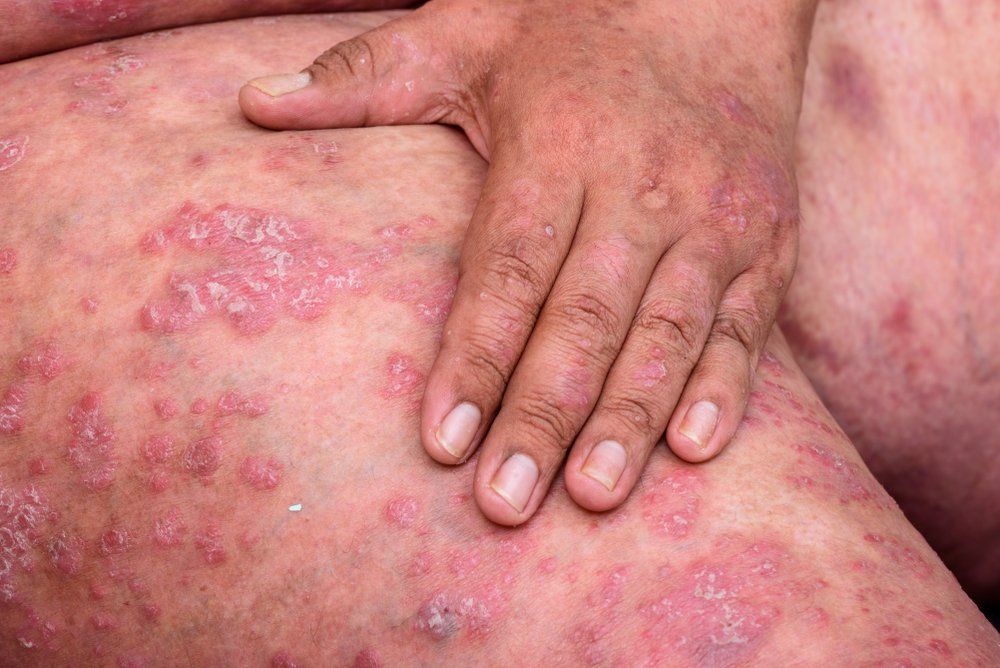Ustekinumab Linked to Lower Serious Infection Rates in Psoriasis and Psoriatic Arthritis
ACR Annual Meeting: Compared with seven other biologics and a phosphodiesterase-4 inhibitor, the anti-IL-12/23 biologic ustekinumab was associated with a generally lower risk of serious infection requiring hospitalization in psoriasis or psoriatic arthritis patients, researchers reported on November 12 at the American College of Rheumatology annual meeting in Atlanta.
(©SweetheartStudioShutterstock.com)

Compared with seven other biologics and a phosphodiesterase-4 inhibitor, the anti-IL-12/23 biologic ustekinumab was associated with a generally lower risk of serious infection requiring hospitalization in patients with psoriasis or psoriatic arthritis, researchers reported on November 12 at the American College of Rheumatology annual meeting in Atlanta.
The study included 123,383 adults (mean age 48, 50% female) with psoriasis or psoriatic arthrits who started treatment with a biologic DMARD (ustekinumab, secukinumab, ixekizumab, or a TNFi (adalimumab, etanercept, infliximab, certolizumab, golimumab) or the oral phosphodiesterase inhibitor apremilast.
Of the patients included in the analysis, 61 percent had psoriasis, 22 percent had psoriatic arthritis and 17 percent had both. "Of 123,383 PsO or PsA patients, ustekinumab initiators had a generally lower risk of hospitalized serious infection compared to TNFi, IL-17 therapy, and apremilast initiators," reported Seoyoung C. Kim, M.D., of Brigham and Women’s Hospital, Boston. Hospitalized serious infections were highest in patients who were prescribed infliximab and lowest in those who received ixekizumab and ustekinumab.
Ultimately, ustekinumab had a lower risk of hospitalized serious infection compared to other bDMARDs or apremilast. However, how well ustekinumab performed as compared to certolizumab and golimumab could not be determined due to the small sample size. Overall, data was consistent across all eight agents, though statistically weaker for certolizumab and golimumab.
The primary outcome was a composite endpoint of hospitalized serious bacterial, viral, or opportunistic infection. Follow-up started the first day a drug was dispensed and ran until the outcome was met, the database ended, or a patient left the study, died, or discontinued or switched drugs.
“Having rigorous real-world based safety data directly comparing several drugs with a similar clinical indication is important when discussing a treatment option with patients and making a better-informed medical decision,” Dr. Kim reported.
REFERENCE“L01 - Comparative Risk of Hospitalized Serious Infection in Patients with Psoriasis and Psoriatic Arthritis: A Population-Based Multi-Database Study,” Seoyoung C. Kim, MD, ScD, MSCE, 9 a.m., Tuesday, Nov 12. American College of Rheumatology 2019 annual meeting, Atlanta.